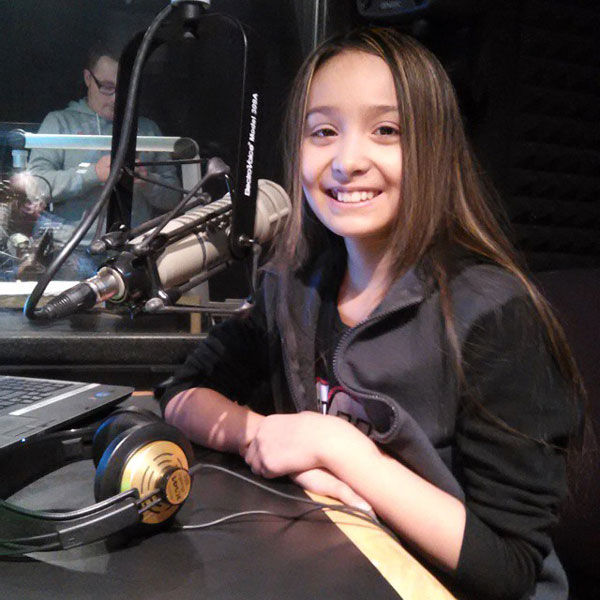Valyncia speaks on the big issue
- Andrea Ledding | March 24, 2015
Grade six public speaking competitions often involve
topics like fitness, music, phys-ed, or the second overall winning speech this
year - chocolate. But when 11 year old Valencyia Sparvier chose her topic, she
was thinking about her cousin Danita BigEagle, missing since 2007, and Tamra
Keepness from her home reserve of Whitebear, missing from Regina for a decade
since age 5. About the time a man in a red truck was trying to lure her into
his vehicle at a city park. About how much she loves her mother, grandmother,
aunties, and little cousins. And so she carefully researched and went forward
from her class with her topic: missing and murdered Indigenous females.
“She did the research on her own - I helped her write
it on cue cards - and she placed first in the whole school,” notes mother
Brandy-Lee Maxie, who adds the teacher was a bit surprised at the topic
initially. “I posted a video and people have been really responsive, including
a CBC article. I talked about it and did a paper in university - it’s something
we discuss at home - we’ve had situations where we’re walking through
north-central in Regina and a car will follow and we have to explain why that’s
a danger - we need to have heavy conversations around safety.”
Eventually at school Valyncia saw some of the online
comments - hateful, ignorant, racist, apathetic, or dismissive - which her dad
was concerned about, but maybe those responses illustrate why this problem
continues to be a problem.
“She has common sense to solutions - everyone should
stick up for each other and watch out for one another,” notes her mother, which
sounds like a pretty reasonable solution to the problem online and on the
streets. “I’m very proud of her - it is a hard subject to discuss.”
After her CBC interview the teacher was asked if the
topic had come up in the classroom and replied cultural topics were included
but not this kind of discussion, and now kids are asking questions.
“All of the girls in his class are First Nations so
that’s something they should be discussing,” Brandy noted. “A lot of them are
starting to hit the pre-teens, and as teenagers, they should know how to keep
each other safe.”
“I chose the topic because it is kind of a big issue
in Canada - and I think I can relate to that because I’m getting into the age
where I am the target,” noted Valyncia, relaying some of her own stories
including the red truck. “My teachers were kind of surprised that I picked that
topic on my own...but my mom has never tried to hide anything - I want to warn
Indigenous girls what might happen in their future if they don’t be safe and
look out for each other.”
She wants to keep others safe, and she wants it to
stop happening.
“There’s been a lot of reports of missing and murdered
Indigenous women and I’m sick of them - there’s new reports every day and I’m sick of that,” she noted. “And
when I read some of those comments - I was surprised at all of those comments -
I don’t really acknowledge them, those aren’t the people I know.”
A young woman’s optimism helps us all see the potential
for positive change. She has bright hopes for her future and the future of
other Indigenous girls and women in speaking change into existence. She admits
to being nervous about public speaking at first but has since presented all the
way through the competition but also to workshops, media follow-up, and an
invitation to a roundtable discussion.
“With 1200 cases there are 225 unsolved. That’s crazy.
I kind of want to make a change to that. I want the kids to acknowledge it. I
want Stephen Harper to acknowledge what I have to say - he just says it’s not
high on his radar - he doesn’t really care about my life or the ones I love.”
She adds that “people are kind of wrong about all
those cases they are blaming on Aboriginal men” as the percentage of solved
cases don’t generally back that statement up: even though Aboriginal men are
important and can be involved in both problems and solutions, they are at risk
too.
So what would she say to Stephen Harper’s daughter?
She would ask her to think about her own relatives being at risk, and encourage
her to use her voice too. Women and children should be seen, heard, valued, and
respected.
“I would tell her that this is a big issue - that I
have a lot of beautiful cousins and that’s why I’m really looking into this and
trying to get this going out there - I have a beautiful grandmother, mother,
cousins, and aunties I want them all to be safe - and I want to get this out
there.”

